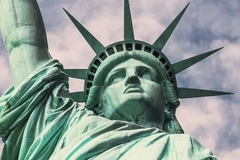Malaysia’s ban on plastic waste imports pressures cosmetics industry to find local solutions

Malaysia’s Federal Government has banned plastic waste imports from 16 countries, including the US. The ban includes recycled materials used for cosmetics and personal care packaging manufacturing, halting a main route in the industry’s supply chain.
The cosmetic industry uses plastic extensively for personal care packaging, and is now facing increased pressure to rethink its materials use and adopt more sustainable practices, such as moving to biodegradable solutions.
Most plastic collected for recycling in wealthier countries is not processed domestically, so the ban adds pressure on local recycling infrastructures.
For international cosmetic packaging manufacturers, this may lead to decreased availability of recycled materials and increased costs.
Shipments into Malaysia will face pre-inspections and must meet contamination thresholds set by the Malaysian government. It also needs to be destined for authorized recycling facilities aligned with the set sustainability standards.
Malaysia followed its neighboring countries, Thailand and Indonesia, which banned imported plastic waste in January this year. China banned it in 2018, influencing Southeast Asian countries to take the same approach.
Yesterday, Amy Youngman, legal and policy specialist at the Environmental Investigation Agency, told Personal Care Insight’s sister website, Packaging Insights:
“Malaysia’s action signals that the Global South is not the world’s dumping ground. As treaty talks advance, we urge exporting countries to match Malaysia’s ambition by imposing their full export bans on plastic waste to end waste colonialism once and for all.”













